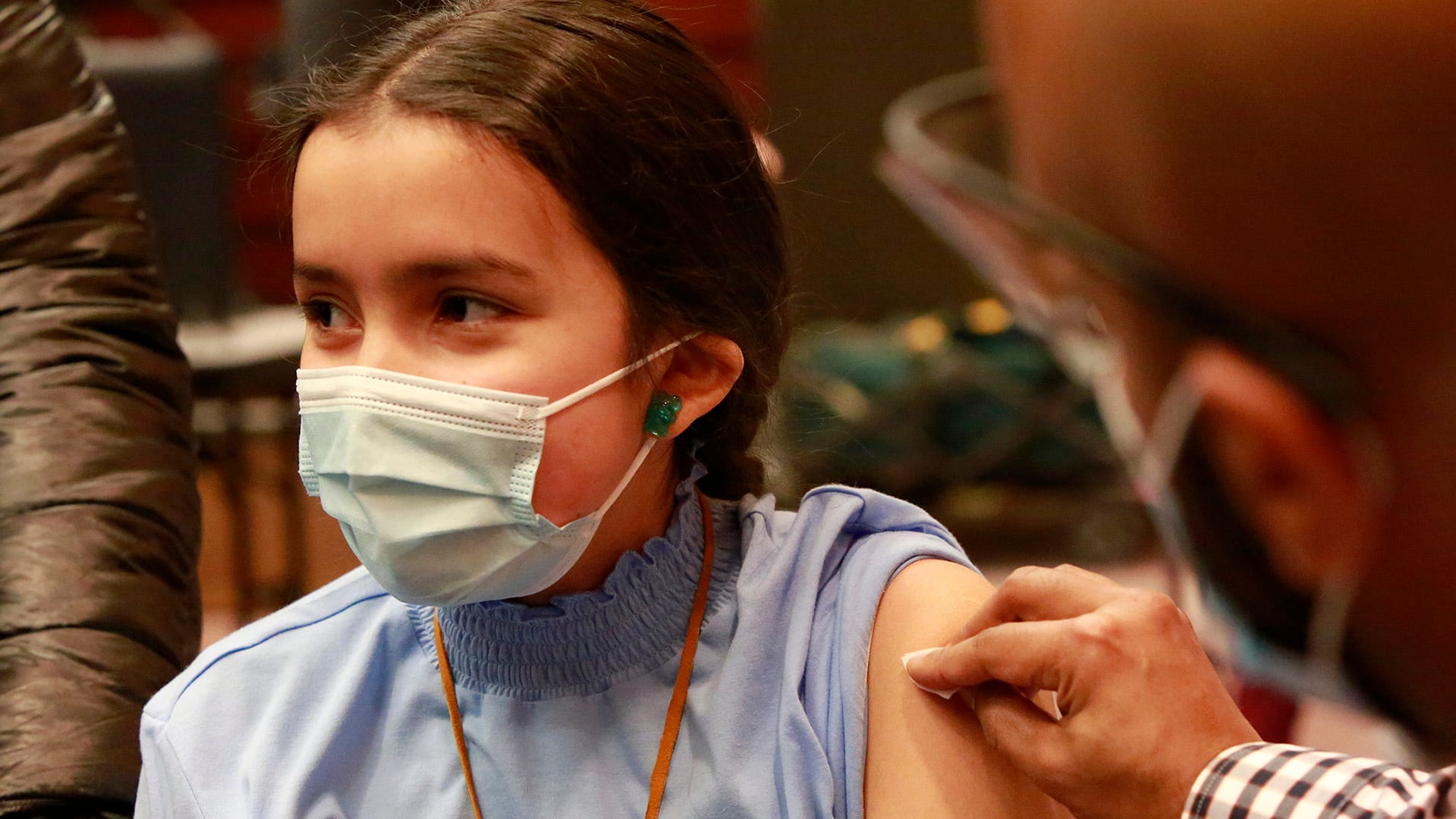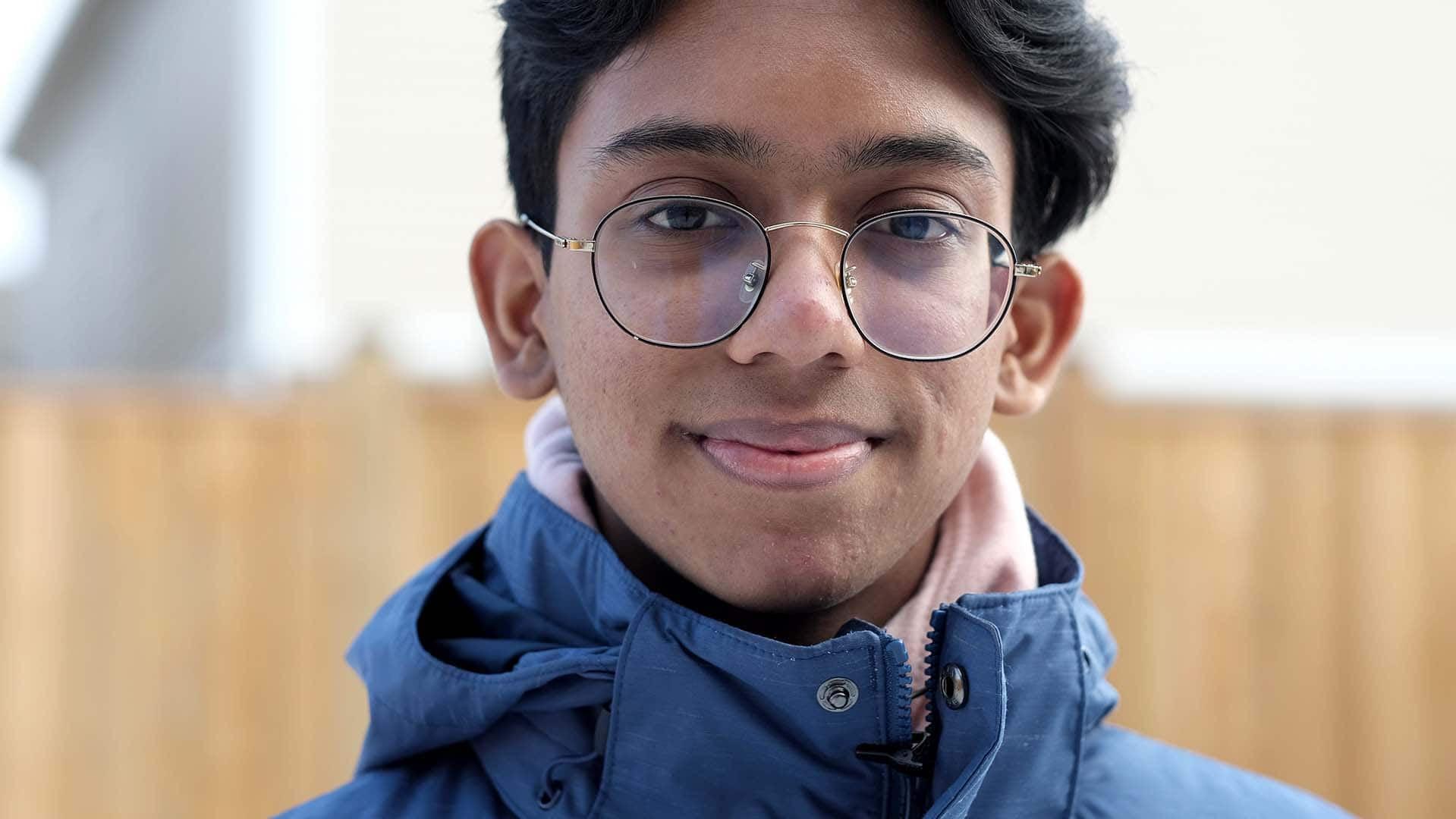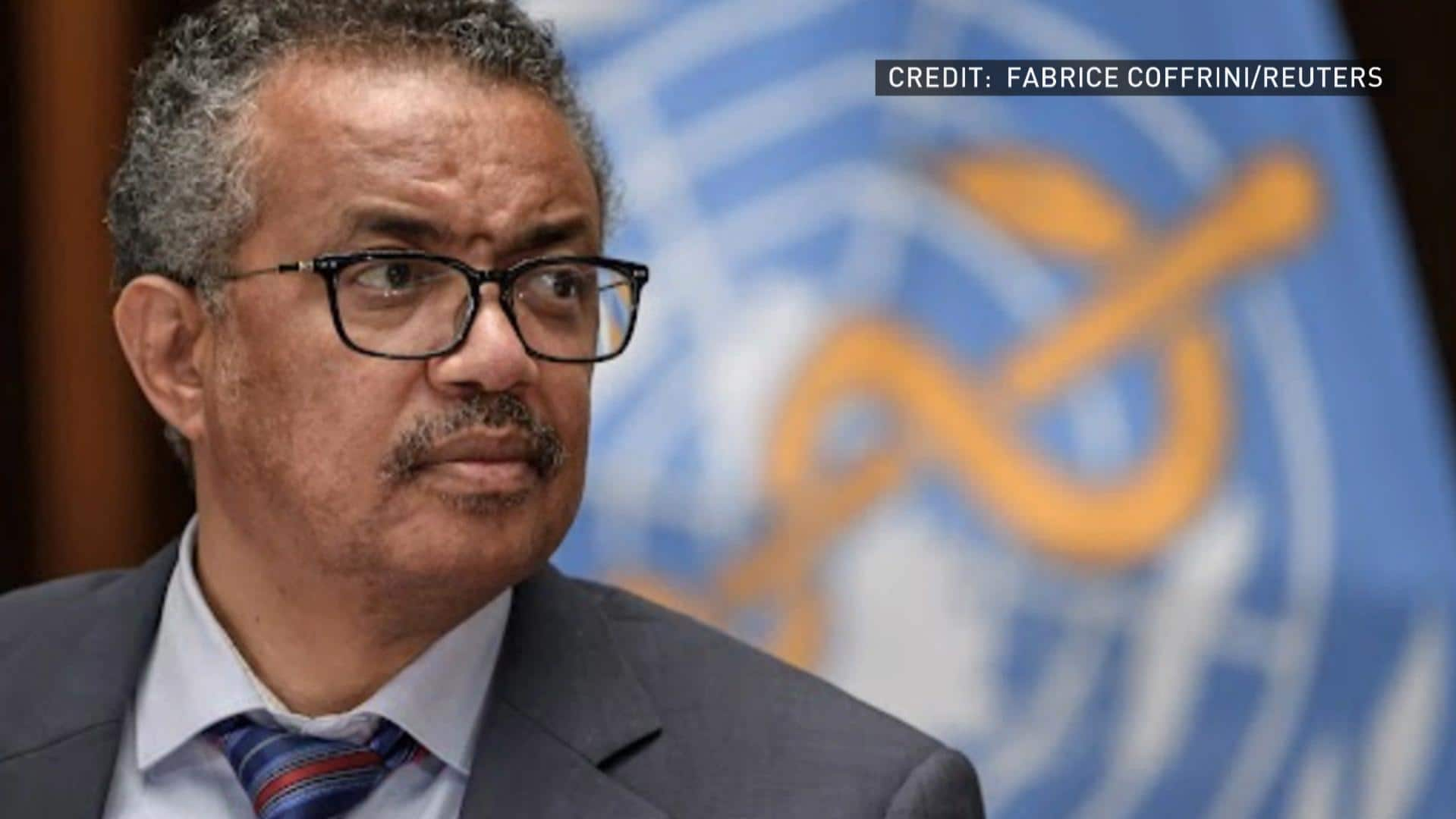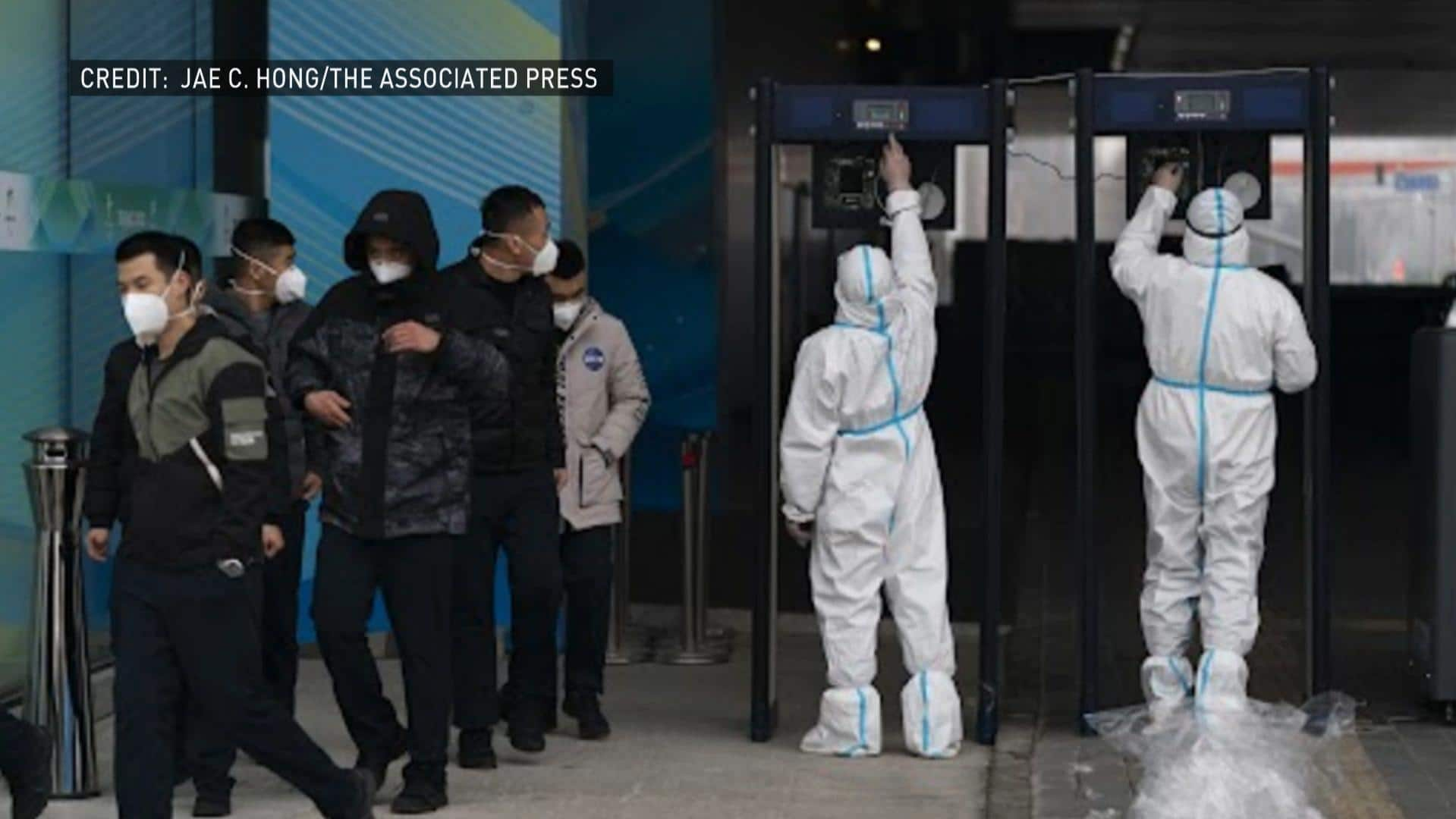Proof of vaccination against COVID-19 is now required to access big-box and other large-scale retail stores across Quebec.

The latest:
- COVID-19 can wreak havoc on your body. So will it cause health issues decades down the road?
- More than 11,000 Ontarians have died with COVID-19, health ministry says
- How schools are pushing through to keep students learning in person despite Omicron
- Hundreds of truckers headed to Ottawa in ‘Freedom Rally’ convoy against vaccine mandate
- Canada planning technological fixes to make crossing the border faster
Proof of vaccination against COVID-19 is now required to access big-box and other large-scale retail stores across Quebec.
Premier François Legault previously announced that Quebecers will have to show their vaccination passport starting today if they wish to enter stores with floor surfaces of 1,500 square metres or more.
The measure comes as Legault continues to focus measures on unvaccinated residents in an effort to curb COVID-19-related hospitalizations, which soared in recent weeks but have declined for the past four days in a row.
Proof-of-vaccination requirements do not apply to stores that primarily sell pharmacy or grocery products.
Quebec expanded its vaccination passport system last week to cannabis and liquor stores.
- Have a coronavirus question or news tip for CBC News? Email: [email protected]
The province’s COVID-19 update posted Monday showed 3,299 hospitalizations — an increase of 16 from a day earlier. The number of people in intensive care units stood at 263 — down by 10 from a day earlier.
Health officials in Quebec also reported 52 additional deaths and 2,807 additional lab-confirmed cases. Because of limits on PCR testing, officials in the province have cautioned that the number of new cases is likely significantly higher.
Junior Health Minister Lionel Carmant is set to announce a plan for unvaccinated Quebecers later this afternoon alongside Daniel Paré, the head of the province’s immunization campaign.
-From The Canadian Press and CBC News, last updated at 11:15 a.m. ET
What’s happening across Canada
WATCH | COVID-19: Children’s vaccinations and hospitalizations:

COVID-19: Children’s vaccinations and hospitalizations
Dr. Earl Rubin, Dr. Katrina Hurley and Dr. Natalie Bridge answer questions about children’s COVID-19 vaccination rates across the country, hospitalizations and Omicron symptoms in kids. 8:11
With lab-based testing capacity deeply strained and increasingly restricted, experts say true case counts are likely far higher than reported. Hospitalization data at the regional level is also evolving, with several provinces saying they will report figures that separate the number of people in hospital because of COVID-19 from those in hospital for another medical issue who also test positive for COVID-19.
- Track how many people have been given the COVID-19 vaccine across Canada
For more information on what is happening in your community — including details on outbreaks, testing capacity and local restrictions — click through to the regional coverage below.
You can also read more from the Public Health Agency of Canada, which provides a detailed look at every region — including seven-day average test positivity rates — in its daily epidemiological updates.
In Central Canada, Ontario on Monday reported 3,861 hospitalizations, an increase of 64 from the previous day. According to the provincial COVID-19 dashboard, there were 615 people in the province’s intensive care units, up by 11 from a day earlier.
The province also reported 37 additional deaths and 4,790 lab-confirmed cases.
Analysis | How the COVID-19 outbreak in Bearskin Lake shows Canada needs to boost crisis response in First Nations
Nearly 1,700 get doses at city’s COVID-19 mass vaccination clinic in northwest Toronto
672-day correspondence gives 4 seniors a unique look at pandemic and friendship
In Atlantic Canada, New Brunswick’s education minister outlined the measures students will follow as they go back to in-person learning Jan. 31.
Dominic Cardy said during a briefing that there will be a return to universal indoor masking, except when individuals are eating or drinking, outdoor masking for high school students, and mandatory vaccination for extra-curricular activities. In addition, he said all staff will be offered N95 masks and they are recommending tightly fitted masks for students.
There are 12 people in intensive care in the province and another 119 in hospital, for a total of 131 people hospitalized with COVID-19. There have been 381 newly lab-confirmed cases of COVID-19 and three additional deaths.
As of Monday, Prince Edward Island has nine people in hospital with COVID-19, including two in the ICU. There have been 157 newly confirmed cases and two more deaths from the virus. The province announced Monday that students at UPEI will not return to in-person classes for at least another month.
Nova Scotia on Monday said there were 92 people in hospital with COVID-19. Fourteen people are in intensive care units. The province also reported an additional 362 lab-confirmed cases and five additional deaths.
In Newfoundland and Labrador, there are two more people in hospital with COVID-19 for a total of 21 Monday, a new high, according to health officials. Five are in the ICU. The province, which is set to send students back to classrooms later this week, also reported 349 new lab-confirmed cases of COVID-19.
- Nova Scotia teachers being asked to provide work to students absent due to COVID
- N.L. to remain in Alert Level 4 as students prepare to return to classrooms
WATCH | 3 teenagers who stepped up to help others during pandemic:

3 teenagers who stepped up to help others during pandemic
These three teenagers have stepped up to help others during the COVID-19 pandemic by delivering food, helping seniors with technology and providing homemade air filters. 6:05
In the Prairie provinces, Saskatchewan Premier Scott Moe said Monday that the province expects to see more hospitalizations, including from incidental cases, as the highly infectious Omicron variant spreads.
Chief Medical Health Officer Dr. Saqib Shahab has in recent weeks urged people not to gather. But the province does not have gathering or capacity reductions in place and there was no indication from the premier Monday that further restrictions are expected.
“What we are asking Saskatchewan people — and what I would put forward the vast majority of Saskatchewan people are doing — is they are slowing down their contacts, they are reducing their contacts,” Moe said at a briefing on Monday.
“But when they feel that it is necessary, they are taking the precautions, using the tools that we have in place, so that they are able to see family members, for example, at a birthday or whatever that … occasion might be.”
LIVE: Sask. Premier and Health Minister provide COVID-19 update for Jan. 24 #yqr #COVID19sk #skpoli https://t.co/kqQLlcpvLp
—@CBCSask
Some 252 people were in hospital, up from 244 a day earlier, the province’s COVID-19 dashboard showed. Of those, 26 patients were in intensive care units across the province. Health officials also reported 1,629 additional lab-confirmed cases.
Manitoba on Monday reported there are 716 people in hospital with COVID-19, including 49 in the ICU. There have been 536 new cases of the virus confirmed along with 23 additional deaths since Friday.
Alberta is expected to provide updated information covering the weekend later in the day.
- Licensing rules keeping internationally trained nurses from working in Manitoba, critics say
- Vaccination rates for Alberta kids ages 5-11 are the lowest in Canada, but experts see hope ahead
- Edmonton-area schools facing worst staffing crunches of COVID-19 pandemic
Across the North, Nunavut on Monday reported 29 additional cases of COVID-19.
Health officials in Yukon and the Northwest Territories are expected to provide updated information about the state of the pandemic later Monday.
British Columbia health officials don’t report COVID-19 data over the weekend. An update covering the three-day period since Friday is expected later Monday.
B.C. to allow COVID-positive and double-vaxxed patients to share hospital rooms
Hundreds in Whitehorse attend protests against COVID-19 health restrictions
-From CBC News and The Canadian Press, last updated at 2:30 p.m. ET
What’s happening around the world
WATCH | ‘Dangerous’ to assume Omicron last variant, says WHO:

‘Dangerous’ to assume Omicron last variant, says WHO
A much higher global vaccination rate is needed to thwart coronavirus variants and end the acute phase of the pandemic, says World Health Organization Director General Tedros Adhanom Ghebreyesus. 1:14
As of early Monday afternoon, more than 352.5 million cases of COVID-19 had been reported worldwide, according to Johns Hopkins University. The reported global death toll was approaching 5.6 million.
The head of the World Health Organization, Tedros Adhanom Ghebreyesus, is warning that conditions remain ideal for more coronavirus variants to emerge, saying it’s dangerous to assume Omicron is the last one or that “we are in the endgame.” Tedros also said the acute phase of the pandemic could end this year — if some key targets are met, including WHO’s target to vaccinate 70 per cent of the population of every country by the middle of this year.
“It’s true that we will be living with COVID for the foreseeable future and that we will need to learn to manage it through a sustained and integrated system for acute respiratory diseases” to help prepare for future pandemics, he said. “But learning to live with COVID cannot mean that we give this virus a free ride. It cannot mean that we accept almost 50,000 deaths a week from a preventable and treatable disease.”
WATCH | What can Canadian athletes expect in Beijing?

Spirit of 2022 Olympics will lift athletes, says Le May Doan
Canada’s athletes will enjoy the celebratory mood at the 2022 Beijing Olympics, says Catriona Le May Doan, the Chef de Mission. 2:32
In the Asia-Pacific region, Beijing’s city government introduced new measures to contain a recent outbreak of COVID-19, as China’s capital continued to report new local cases of the virus less than two weeks before it hosts the Winter Olympic Games.
India reported over 300,000 new COVID-19 infections for the fourth straight day, even though the caseload over the last 24 hours was slightly lower than a day before, data released by the government on Sunday showed.
In Europe, tens of thousands of people protested in Brussels, Belgium, against COVID-19 restrictions on Sunday, some clashing with police who fired water cannon and tear gas to disperse them near the European Commission’s headquarters.

Russia on Monday reported a new record number of COVID-19 cases confirmed in the past 24 hours as the Omicron variant of the virus spread across the country, the government coronavirus task force said. Daily new cases jumped to 65,109, from 63,205 a day earlier. The task force also reported 655 deaths.
In Africa, health officials in South Africa on Sunday reported 1,931 new cases of COVID-19 and 114 additional deaths.
Due to the ongoing audit exercise by the National Department of Health (NDoH), there may be a backlog of #COVID19 mortality cases reported. Today, the NDoH reports 114 deaths and of these, 17 occurred in the past 24 – 48 hours. This brings the total fatalities to 94 177 to dat
—@HealthZA
In the Middle East, health officials in Iran on Monday said 21 people had died from COVID-19 in the past 24 hours. The country also reported 7,691 additional cases.
In the Americas, the United States — the World Health Organization’s top donor — is resisting proposals to make the agency more independent, four officials involved in the talks said, raising doubts on the Biden administration’s long-term support.
Mexican President Andres Manuel Lopez Obrador, who recently recovered from his second infection, reassured Mexicans he was in good health following an overnight hospital stay.
-From Reuters, CBC News and The Associated Press, last updated at 12:50 p.m. ET

